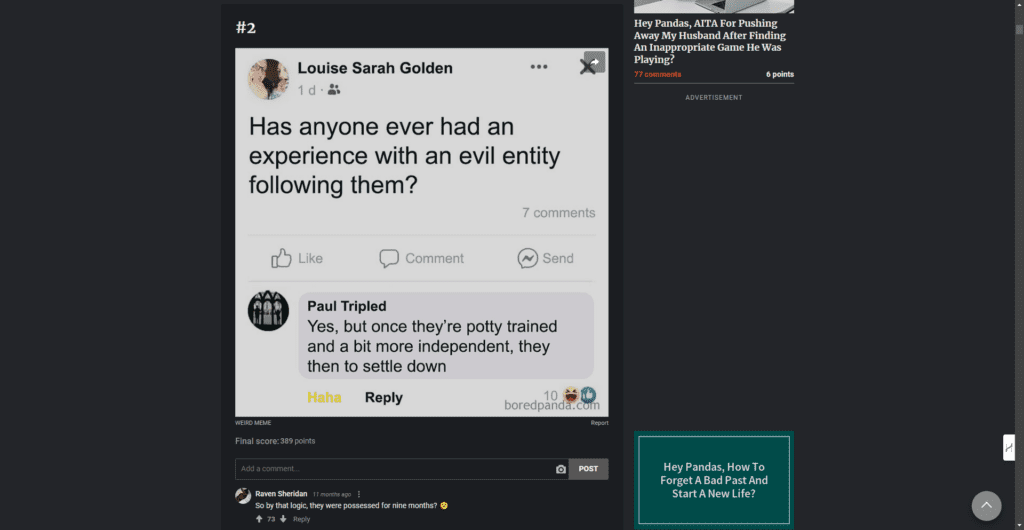Key takeaways:
- Human-generated content excels in areas requiring personal experience, emotional depth, and nuanced understanding.
- AI struggles with producing timely news updates, authentic product reviews, and technical articles with specific visuals.
- Emotionally resonant and legally complex content remains firmly in the human domain.
Ever wondered why some articles just hit different? Why they make you feel something, or give you that “aha!” moment?
Well, it’s because they’re written by humans like you and me. In this world of AI taking over everything, there are still some types of articles that only we humans can nail. Let’s dive into these six types and see why AI just can’t compete.
News Updates That Keep You in the Loop
Breaking news, anyone? When it comes to the latest happenings, human journalists are still the MVPs.
Why? Because we’ve got something AI doesn’t: real-world context and the ability to sniff out a story.

Think about it. A reporter on the ground can feel the tension in a protest, smell the smoke from a fire, or catch the excitement in a crowd during a big event. AI can’t do that.
Plus, there’s the legal side of things. News outlets need to fact-check and verify sources. They can’t just publish whatever an AI spits out without checking its accuracy.
Remember the New York Times lawsuit against OpenAI? It’s a perfect example of why human-generated news is still king.
Product Reviews That Actually Help You Decide
Ever read a product review and thought, “Wow, this person really gets it”? That’s because they actually used the product.
AI can summarize specs and features all day long, but it can’t tell you how comfy those shoes really are after a 10-mile hike.

I once bought a coffee maker based on an AI-generated review. Big mistake. It looked great on paper, but in reality, it was a nightmare to clean and made lukewarm coffee at best.
Human reviewers bring personal experience to the table. They can tell you about the little quirks and unexpected benefits that you won’t find in a product description.
Product Roundups That Save You Time and Money
Similar to reviews, product roundups need that human touch.
AI might be able to list a bunch of products in a category, but it can’t really compare them in a meaningful way.

When I’m looking for the best WordPress plugins for my clients, I don’t just want a list. I want to know which ones play nice together, which ones might slow down a site, and which ones are worth the price tag.
That kind of insight comes from actually using the products in real-world scenarios.
Technical Articles With the Visual Goods
Sure, AI can write about tech stuff. But can it show you exactly how to navigate that tricky software interface?
Nope. That’s where we humans shine.
Technical articles often need custom screenshots, diagrams, or photos to really drive the point home.

I remember trying to follow an AI-generated tutorial on setting up a WordPress multisite. It was a disaster. The steps were there, but without visuals, I was lost.
When I write tech articles for my clients, I always include plenty of screenshots. It’s like holding their hand through the process.
Risky Jokes That Actually Land
Humor is hard. Like, really hard. And risky humor? That’s a whole other ballgame.
AI doesn’t understand context or cultural nuances the way humans do. It can’t read the room or know when a joke might cross the line.

I once saw an AI attempt at writing a comedy routine. Let’s just say it won’t be headlining any shows anytime soon.
Humans, on the other hand, can craft jokes that are edgy without being offensive. We know how to push boundaries while (hopefully) staying on the right side of them.
Emotionally Authentic Content That Hits You in the Feels
This is where AI really falls flat. Emotional authenticity is something that comes from lived experience.
AI can’t write about the joy of holding your newborn for the first time, the heartbreak of losing a loved one, or the thrill of achieving a long-held dream.
These deeply human experiences are what make content resonate. They’re what make readers nod along and think, “Yes, this person gets me.”
I once wrote an article about the ups and downs of running a solo web agency. The response was overwhelming. People connected with the struggles and triumphs because they were real.
Why This Matters for Your Content Strategy
Understanding these limitations of AI is crucial for anyone creating content. Whether you’re a business owner, a marketer, or a fellow content creator, knowing when to use AI and when to rely on human writers can make or break your content strategy.
AI is a fantastic tool for many things. It can help with research, generate outlines, and even write basic drafts. But for content that truly connects, informs, and moves people, there’s no substitute for the human touch.

Struggling With Traffic?
I will write content that beats competitors
I will research and produce high-quality content at scale, combining state-of-the-art AI models with human’s supervision.
As someone who works with both AI and human-generated content, I’ve found that the best approach is a blend. Use AI to handle the heavy lifting, but always have a human to add that special sauce of experience, emotion, and insight.
Remember, at the end of the day, we’re creating content for humans. And who better to speak to humans than other humans?
FAQ
Can AI write any type of article at all?
AI can generate various types of content, including basic informational articles, simple reports, and data-driven pieces. However, it struggles with content that requires personal experience, emotional depth, or real-time information. AI-generated content often lacks the nuance, creativity, and authenticity that human writers bring to their work.
How can I tell if an article is written by AI or a human?
While it’s getting harder to distinguish, there are a few telltale signs. AI-generated content often lacks personal anecdotes, may have inconsistencies in tone or style, and typically doesn’t include recent events or cultural references. Human-written articles tend to have a more consistent voice, include personal insights, and can reference very recent events or experiences.
Is it okay to use AI in content creation at all?
Absolutely! AI can be a valuable tool in content creation when used appropriately. It’s great for tasks like research, generating topic ideas, or creating initial drafts. The key is to use AI as a starting point or a tool to enhance human creativity, not as a replacement for human insight and experience. Always have a human review and refine AI-generated content to ensure quality and authenticity.






